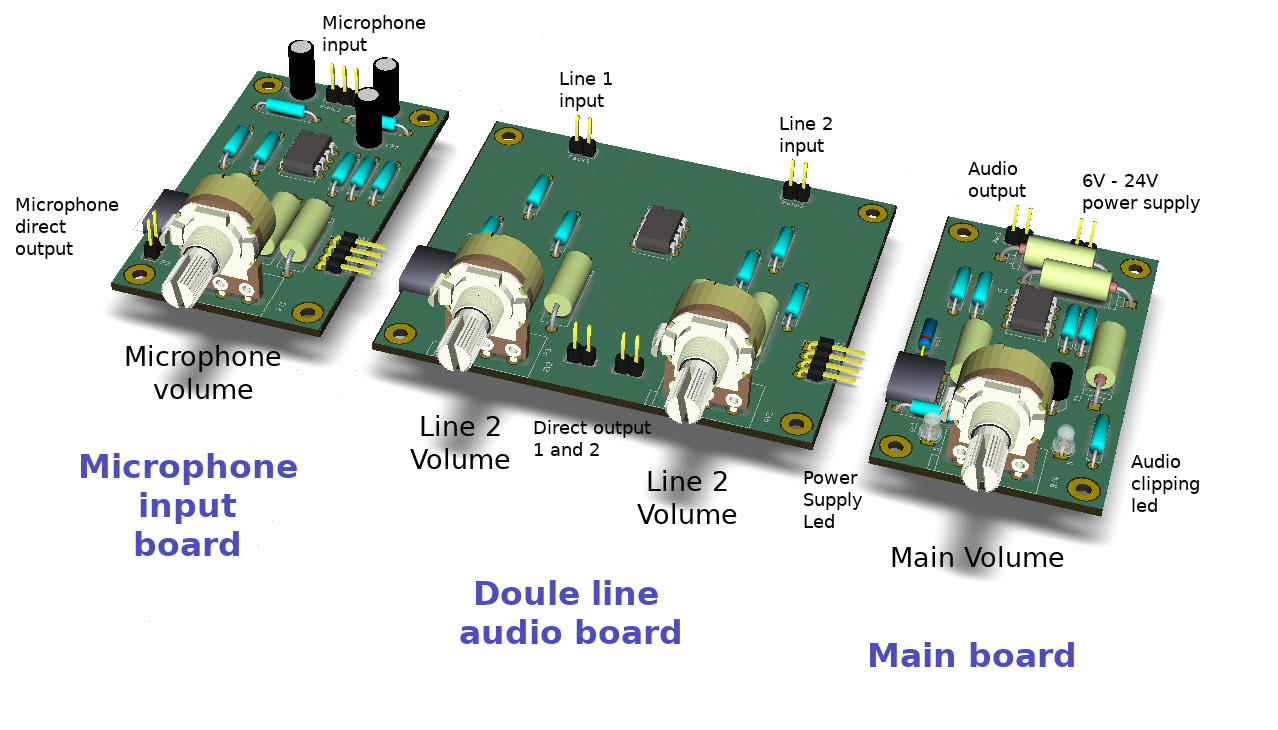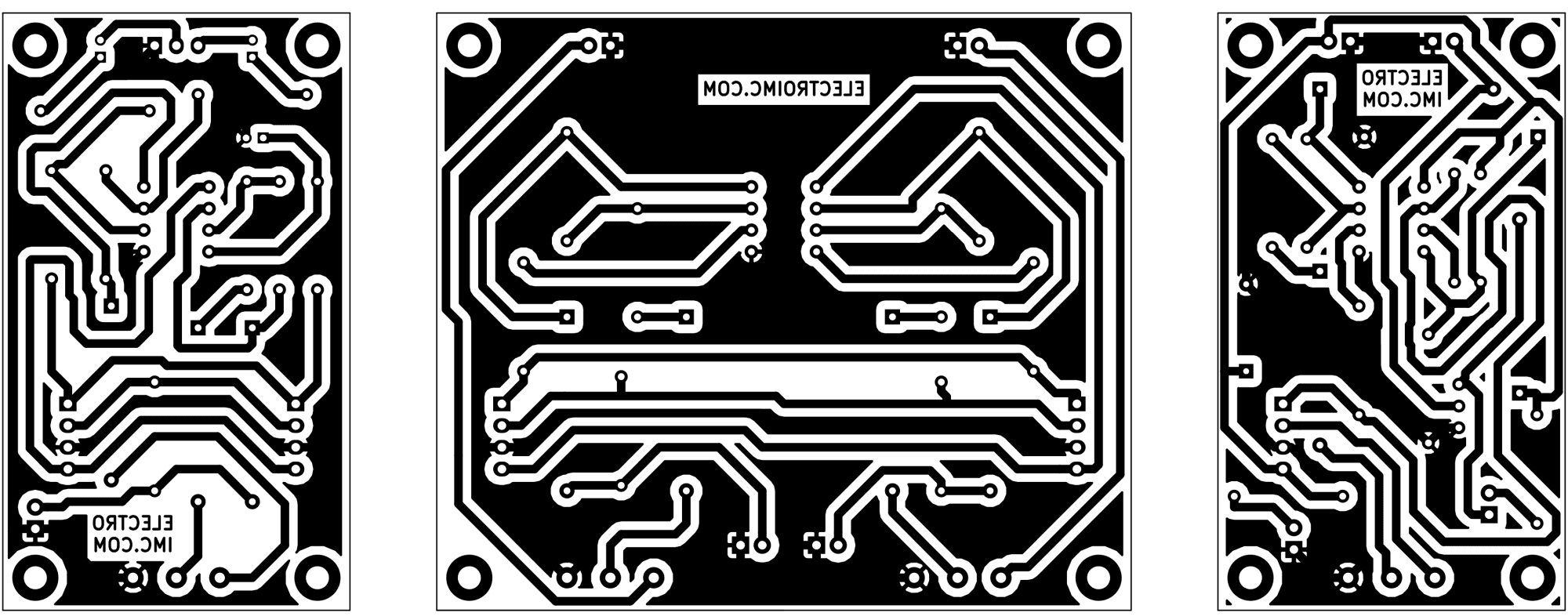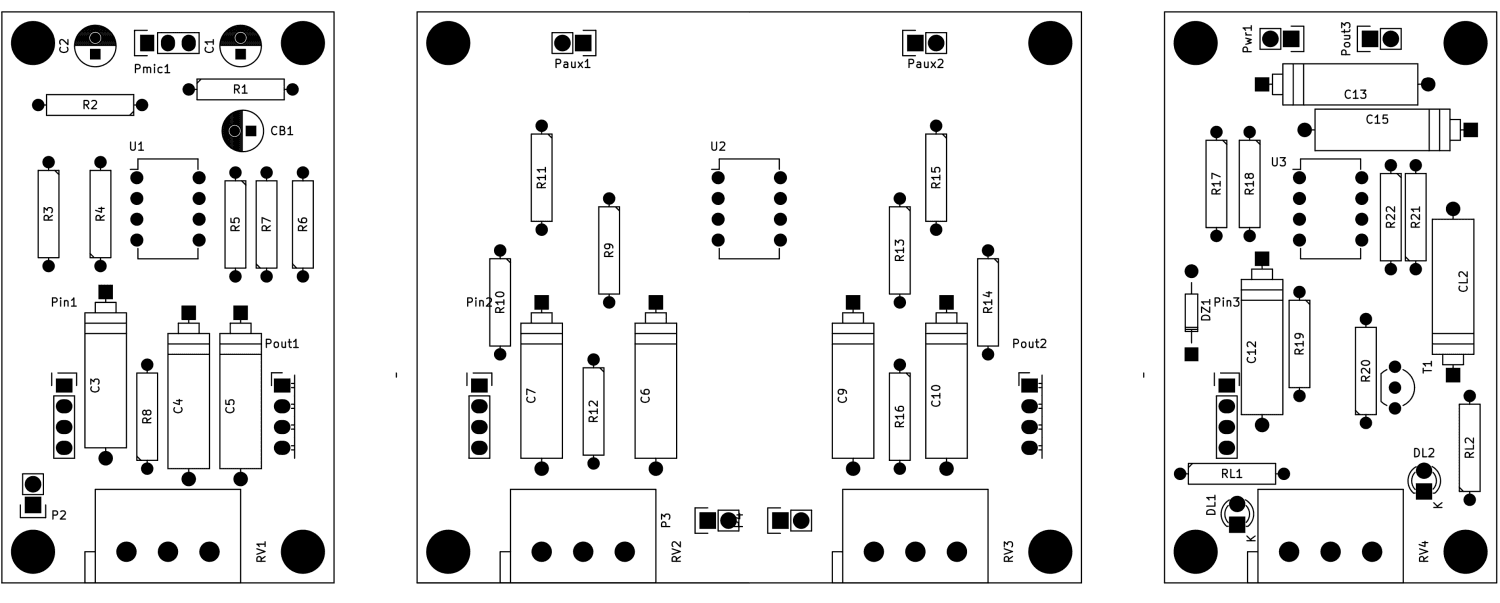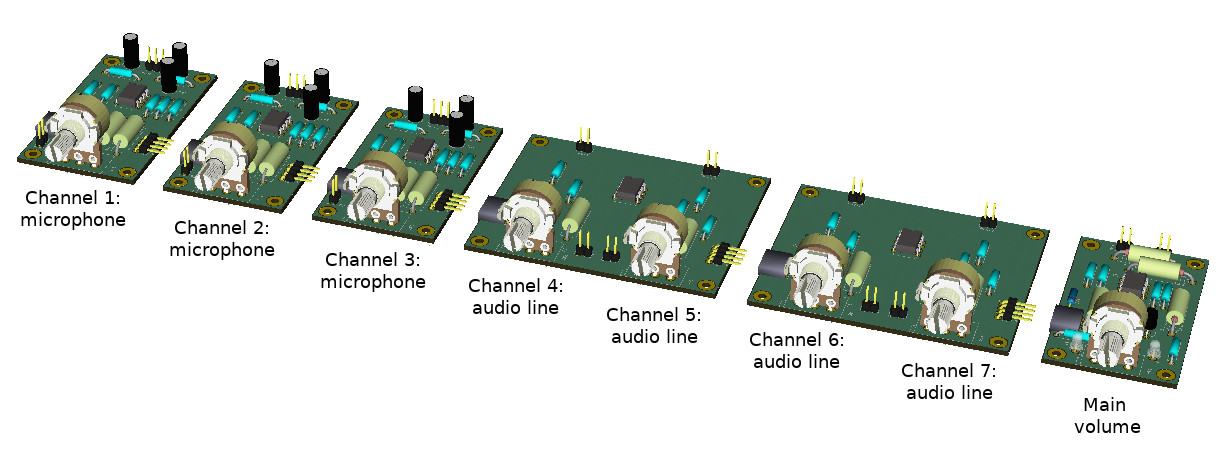

Single power supply modular audio mixer
In this series of articles a simple audio mixer will be presented, with the following specifications:
- Compact and simple;
- Modular;
- Mono;
- Single power supply;
- Simple schematic and printed circuit board.
 Download the full Kicad project (181.6Kb)
Download the full Kicad project (181.6Kb)
Schematic, printed circuit board, gerber and pdf files for this project
Simple and compact
Designed with these two characteristics in mind, the mixer has no frills, and it is simple and fast to assemble. The volume regulation for each channel and a main volume are the minimum requirements for a simple mixer. As an optional feature, a power supply led and a clipping led can be soldered. Due to the interchangeable modules, it is possible to choose the optimal setup for each situation. Anyway, in spite of its simplicity, the mixer was designed paying attention to audio signal quality.
Modular
The three mixer boards (microphone input, line audio input and main one) allow to personalize the number and the type of channels according to the usage needs, even after the mixer has been assembled. In the Figura 4 is shown a possible configuration, useful for example for an amateur band group.
Mono
Simple and compact design imply the the choice of a mono audio, to avoid complication of the schematic and assembly. There are many cases where a mono mixer is the most practical choice, such as a simple reharsal room, a karaoke night or a portable battery loudspeaker.
Single power supply
Dual power supply simplifies the circuit and its design, but in many common situations it is not practical and it is difficult to setup: cars, batteries or consumer chargers, for instance, usually offer a single power supply. One of the most common voltages is 12V, so the mixer was designed for this tension.
The mixer can also work between 6V and 24V with two small modifications, provided that the chosen op-amp, such as the LM358, supports it. In this case the led resistors in the Main board should be changed consequently, as shown in the Tabella 1.
| Power supply | RL1 and RL2 led resistors |
|---|---|
| 6V | 390Ω |
| 12V | 1 KΩ |
| 24V | 2,2 KΩ |
Simple schematic and printed ciruit board
The mixer uses only very common components in electronics. Moreover being very common, the LM358 op-amp has many equivalent integrated circuits. All resistors and capacitors have standard E12 series values, and if possbile the same value was always used, to reduce the number of different components to be bought.
The printed circuit board has wide tracks and it is single side, therefore it can be easily assembled by hobbyists too, using a pen drawing method or photoengraving with a contact copier. The boards include holes for screws, and the distance among the potentiometers is always the same, so the user panel can be easily built.
Bibliography and other documents
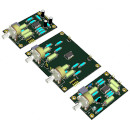 Single power supply modular audio mixer
Single power supply modular audio mixer
Schematic and printed circuit board for a single power supply audio mixer, made of a master module and many line in or mic modules.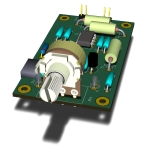 Mixer: main board
Mixer: main board
The schematic and the printed circuit board for the main board of the single power supply modular audio mixer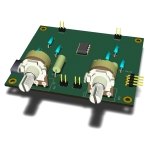 Mixer: line input board
Mixer: line input board
Schematic and printed circuit board for the line input board, part of the single supply modular audio mixer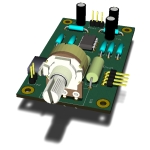 Mixer: mic input board
Mixer: mic input board
Schematic and printed circuit board for the microphone preamplifier board, part of the single power supply modular audio mixer.
Copyright 2014-2025 electroimc.com




